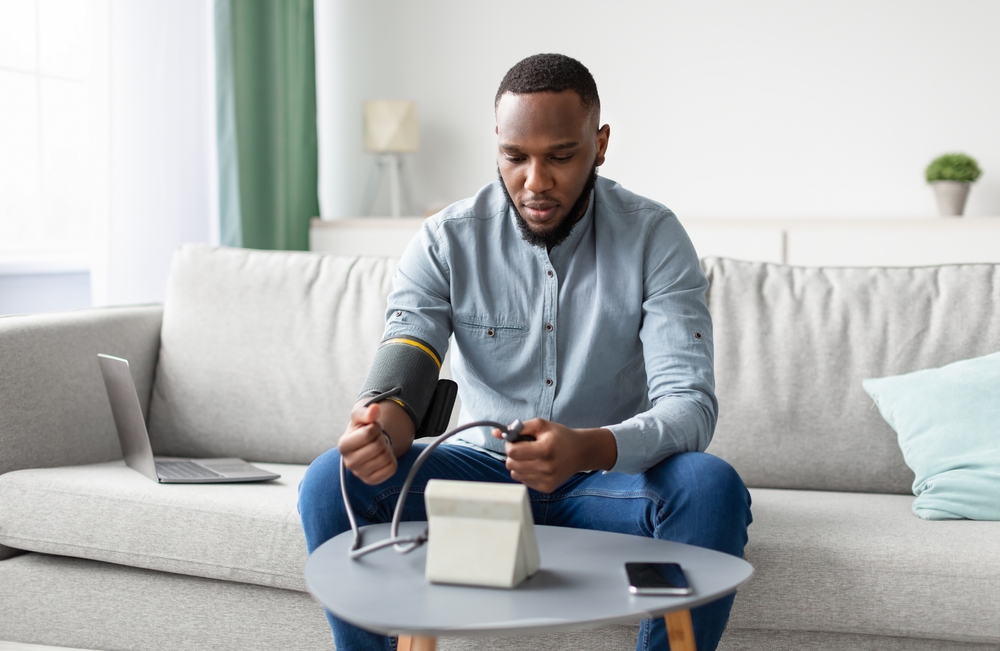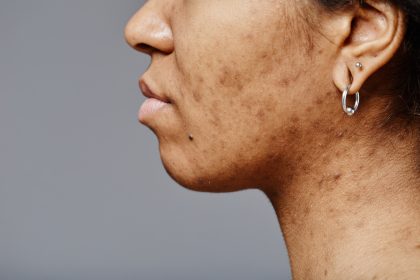The hours before sleep offer a unique opportunity to influence your cardiovascular health while you rest. Among various evening habits, one stands out for its remarkable ability to lower blood pressure naturally during the night. This practice requires no prescription, costs nothing to implement, and works with your body’s natural rhythms to create measurable improvements in blood pressure readings by morning. For the millions of Americans concerned about hypertension, this accessible approach deserves consideration alongside conventional treatments.
Hypertension affects nearly half of American adults, significantly increasing their risk of heart attack, stroke, and kidney disease. While medication remains essential for many, growing evidence suggests that specific nighttime routines can meaningfully complement medical approaches or potentially reduce medication needs for some individuals. This natural strategy works during sleep when your cardiovascular system undergoes crucial recovery processes.
Deep breathing activates parasympathetic response
A structured deep breathing practice before bed triggers your parasympathetic nervous system, the “rest and digest” mode that counterbalances the stress response. Research shows that just 5-10 minutes of slow, rhythmic breathing can reduce blood pressure by 5-7 points within a single session.
When practiced consistently before sleep, deep breathing helps lower nighttime blood pressure, the measurement most strongly linked to cardiovascular events. The technique works by increasing nitric oxide production, a natural vasodilator that relaxes blood vessel walls. This relaxation creates wider pathways for blood flow, reducing the pressure against arterial walls.
The precise breathing pattern matters significantly. The most effective approach involves inhaling deeply through the nose for a count of four, holding briefly, then exhaling slowly through slightly pursed lips for a count of six or eight. This extended exhale phase specifically activates parasympathetic responses that lower heart rate and blood pressure.
Meditation reduces nighttime pressure spikes
Adding a short meditation practice to your bedtime routine has shown remarkable effects on nighttime blood pressure patterns. Studies found that people who meditate before sleep experience fewer pressure spikes during the night, a crucial factor since most heart attacks occur in the early morning hours when pressure naturally surges.
Meditation appears to reduce the activity of the sympathetic nervous system, which drives the fight-or-flight response that constricts blood vessels and raises pressure. Brain imaging studies show decreased activity in the amygdala, the brain’s stress center, following regular meditation practice.
For those new to meditation, guided sessions focused specifically on body relaxation prove most effective for blood pressure reduction. These progressive relaxation approaches systematically release tension throughout the body while calming mental activity that might otherwise persist during sleep, creating subtle but chronic pressure elevation.
Strategic hydration balances blood viscosity
Properly timed evening hydration significantly influences overnight blood pressure. The relationship between fluid intake and blood pressure follows a delicate balance. Dehydration causes blood to become more viscous, requiring greater pressure to pump through vessels, while excessive evening fluids can elevate pressure through increased blood volume.
Research suggests consuming 8-12 ounces of water about 90 minutes before bedtime provides optimal hydration without disrupting sleep with bathroom trips. This timing allows your kidneys to process excess fluid while maintaining proper blood consistency throughout the night.
The type of beverage matters substantially. Water, particularly water infused with minerals like potassium and magnesium, supports healthy blood pressure regulation. By contrast, alcohol and caffeinated beverages consumed in the evening increase nighttime blood pressure through their diuretic and stimulant effects, undermining otherwise sound sleep habits.
Temperature regulation improves pressure stability
Your bedroom temperature significantly affects nighttime blood pressure patterns. Research shows that sleeping in a cool environment, ideally between 65-68°F, helps maintain lower and more stable blood pressure throughout the night by supporting healthy sleep architecture.
The body naturally lowers its core temperature during deep sleep stages, which coincides with blood pressure dips. A cool room facilitates this natural temperature drop, helping you reach and maintain the deeper sleep phases associated with optimal blood pressure reduction.
Creating this cooler sleep environment involves more than just adjusting the thermostat. Breathable, natural fiber bedding that wicks moisture away from the skin helps prevent temperature fluctuations that might otherwise trigger subtle stress responses and accompanying pressure increases during sleep.
Evening potassium intake enhances sodium balance
Consuming potassium-rich foods as part of your evening meal or bedtime snack helps regulate blood pressure through improved sodium balance. Potassium counters sodium’s blood pressure-raising effects by prompting the kidneys to excrete more sodium through urine.
Research indicates that the timing of potassium intake affects its blood pressure benefits, with evening consumption showing particular advantages for overnight pressure regulation. This timing aligns with the kidney’s natural filtration cycle, which becomes especially active during the first half of sleep.
Bananas, sweet potatoes, spinach, and avocados all provide excellent potassium sources appropriate for evening consumption. A small bedtime snack combining these foods with a source of tryptophan, such as a few nuts or seeds, delivers dual benefits by supporting both blood pressure regulation and melatonin production for better sleep.
Consistency reinforces circadian pressure rhythms
Perhaps the most powerful bedtime strategy for blood pressure management lies in consistent timing itself. Your cardiovascular system follows circadian rhythms that regulate pressure fluctuations throughout the day and night. Going to bed at the same time each night helps reinforce these natural patterns.
Studies show that people with irregular sleep schedules experience less nighttime blood pressure dipping, a phenomenon normally characterized by a 10-20% drop in pressure during sleep. This “non-dipping” pattern strongly predicts cardiovascular events and organ damage, making sleep consistency a crucial but often overlooked factor in heart health.
The body’s natural rhythm expects sleep to begin about 2-3 hours after darkness falls. Aligning your bedtime with this window strengthens circadian signals that trigger the nocturnal blood pressure decline essential for cardiovascular recovery and long-term heart health.
Gratitude practice reduces sympathetic activation
Ending your day with a structured gratitude practice appears to create measurable effects on overnight blood pressure. Research participants who spent five minutes writing in a gratitude journal before bed showed blood pressure readings 5-15% lower than those who did not engage in this practice.
This remarkable effect likely stems from gratitude’s ability to shift the autonomic nervous system from sympathetic dominance toward parasympathetic activation. Positive emotional states generated through gratitude practices reduce cortisol and adrenaline, hormones that drive blood vessel constriction and pressure elevation.
The specific approach matters less than the consistency. Whether writing in a journal, mentally listing gratitudes, or sharing them with a partner, the key lies in genuinely engaging with feelings of appreciation rather than merely going through motions. This authentic emotional engagement triggers the physiological shifts that benefit blood pressure.
Implementing these evidence-based bedtime practices offers a powerful complement to medical approaches for hypertension management. While no natural technique replaces appropriate medical care for high blood pressure, these strategies work harmoniously with treatments to potentially enhance their effectiveness or possibly reduce medication needs over time.
The combined approach proves most powerful when implemented consistently as part of a comprehensive blood pressure management plan. By establishing these evening rituals as non-negotiable aspects of your bedtime routine, you harness your body’s natural overnight restoration processes to support heart health while you sleep.















